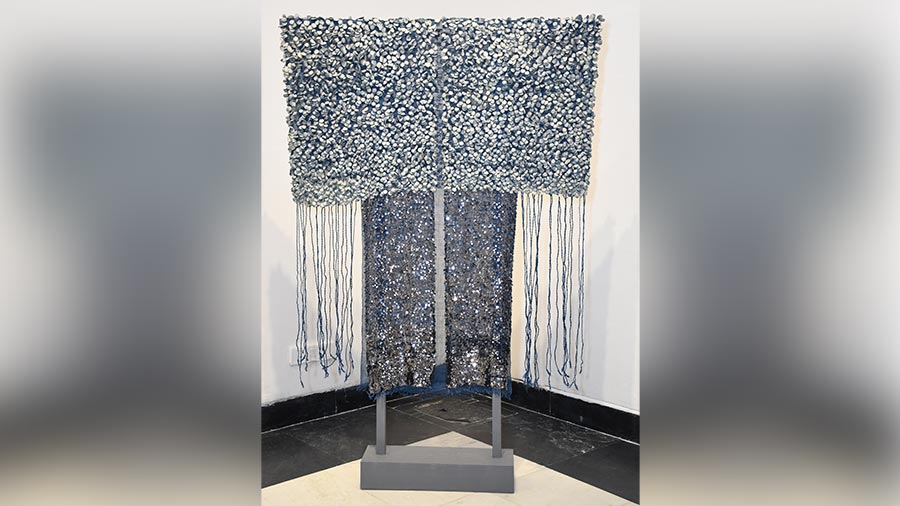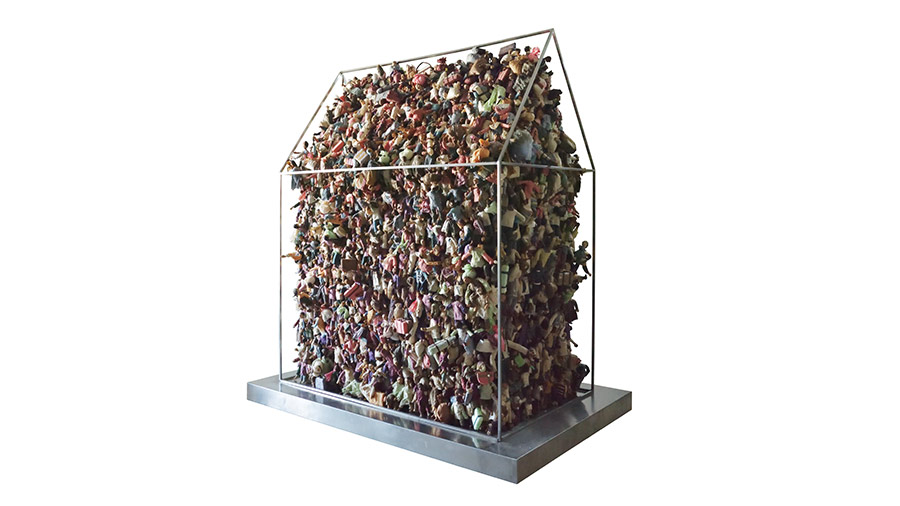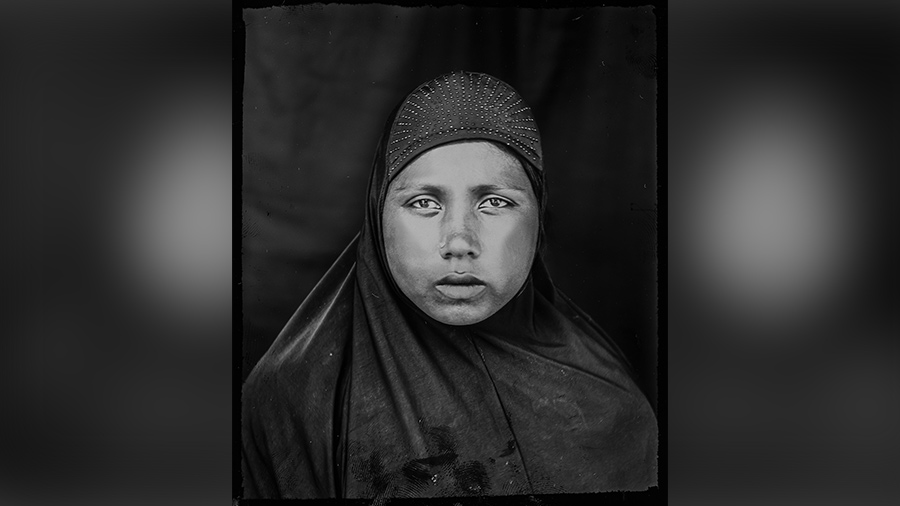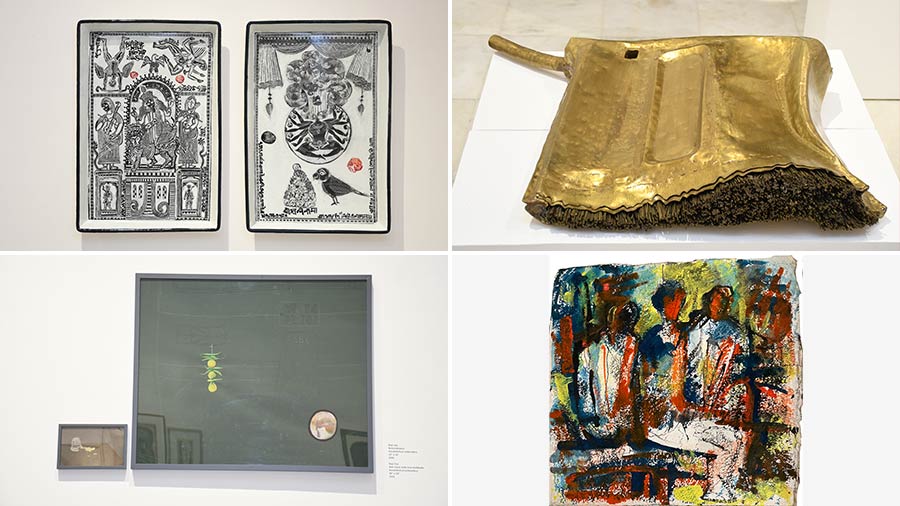Protest, passion and provocation mark Bengal Nama, the art exhibition from Gallery Art Positive, in Delhi, featuring 20 important modern artists from West Bengal and Bangladesh.
At a time when retrospectives, ornamental and folk themes are popular, Ina Puri’s curation, highlighting art’s persuasive and compelling aspects to reflect change and fluctuating realities, strikes a radical note of protest and healing.
As Puri explains, “Be it about alienation or issues of resistance, radical criticism of the socio-political systems or playful irony and banter about the ‘bhadralok’, you find a rich diversity and multiplicity in the image-making emerging from the region.”
She’s right. Bengal artists have a long history of using their paintings and plastic arts to speak about immediate social and political concerns. The satirical works of Gaganendranath Tagore, the paintings of Nandalal Bose, Chittaprosad’s wood cuts and Ramkinkar Baij’s sculptures on the Bengal famine in the 1940s set impressive precedents along the lines of protest and provocation. The region’s artists were pioneers who amalgamated inspiration from folk, decorative, religious, European, Oriental, modern, contemporary themes that were social, political, deeply personal, and playful.
Puri’s endeavour is to showcase how the artists “tackle an array of subjects from migration to geopolitics, and mythology to the ecological and social critique of existing crises like climate change.”
Bengal Nama invokes that old fire on a contemporary platform. It’s reflective of the past and prescient of the future – both ruminate about bringing humanity in focus of all intellectual and social developments.
To that end the show represents a wonderfully diverse range of mediums that makes the viewing multi-sensorial and immersive. Paintings, sculptures, installations, collages, photography, video artworks, embroidery, and textiles make for multifaceted mediums to explore complexities and begin dialogues around matters of the past and present. Moving from exhibit to exhibit is to be invited into a different medium articulating the history and culture of the region.

An artwork by Bappaditya Biswas
Kolkata’s textile expert and designer Bappaditya Biswas’s display is a glittering weave in indigo, a hark back to the part played by the plant and the dye in the Swadeshi Movement. From Bappaditya’s well-heeled neighbourhood in Kolkata we move to the resident autorickshaw-driver-turned embroidery artist, Bapi Das from Kolkata’s poorer Narkeldanga. The handstitched embroidery on canvas that looks like an autorickshaw’s tarpaulin, Buri nazar wale tera muh kaala evokes a sense of whimsy. Debasish Mukherjee’s embroidery and ink in organic cotton are charming recreations of print advertisements of another era. Bangladeshi artist Najmun Nahar Keya’s Borno Geety is a poem scripted and installed on a wall, the letters molded in printed Tangail sari, giving a pillowy texture to the words of magical spells and folk truisms.

The Home by Sudipta Das
Go beyond the textiles to Sudipta Das’s mixed media installation, a metaphor on the great press of humanity, Partha Dasgupta’s folk painting on ceramic enamelled trays to the gilded wonders of Narayan Chandra Sinha’s brass installation and the erotic silence of kinetic sculptures of paan boxes of Promotesh Das Pulak that share space with the elder masters like Paritosh Sen, Jogen Chowdhury, K.G. Subramanyan, Shyamal Dutta Ray, Lalu Prasad Shaw and Reba Hore.

A portrait from artist Shahria Sharmin's 'When home won't let you stay' series
The riveting photo exhibits of Shahria Sharmin When Home Won’t Let You Stay freeze the frames on Rohingya refugees and the brutalities they witnessed in Myanmar with chilling intensity. The deeply disturbing single channel film by Somya Sarkar Das replays the police brutality on East Pakistan refugees in the Marichjhapi Island massacre on January 31, 1979.
Bengal Nama is rich, deep and sombre, an ode to the complex humanity of a people, region, language and the beauty and brutality in a place called home.
The exhibition can be viewed from January 7-20, 2023 at Gallery Art Positive, Lado Sarai, New Delhi
